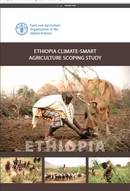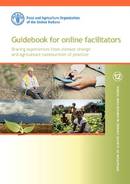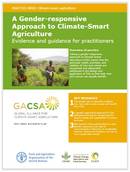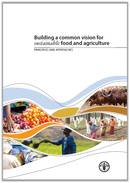Publicaciones
This practice brief explains how Climate-Smart Agriculture (CSA) practices can be designed and implemented so that the the differences and inequalities between men and women are taken into account. This brief was prepared by the Food and Agriculture Organization (FAO) and the CGIAR Research Program on Climate Change, Agriculture and Food Security (CCAFS) for the Global Alliance for Cliamte-Smart Agriculture.
Agriculture is facing an unprecedented confluence of pressures that urges for profound changes in our food and agriculture (crops, livestock, forestry, fisheries, and aquaculture) systems.
The adoption of climate-smart agriculture (CSA) practices requires appropriate institutional and governance mechanisms to facilitate the dissemination of information and to ensure broad participation by relevant stakeholders and targeted beneficiaries. Among the drivers influencing CSA adoption, the understanding of how gender could influence the effectiveness of these instruments is capturing increasing attention in the literature. The aim of this note is to provide some insight on the data and tools necessary when dealing with the analysis of the effects of CSA on food security, focusing on a gender perspective.





